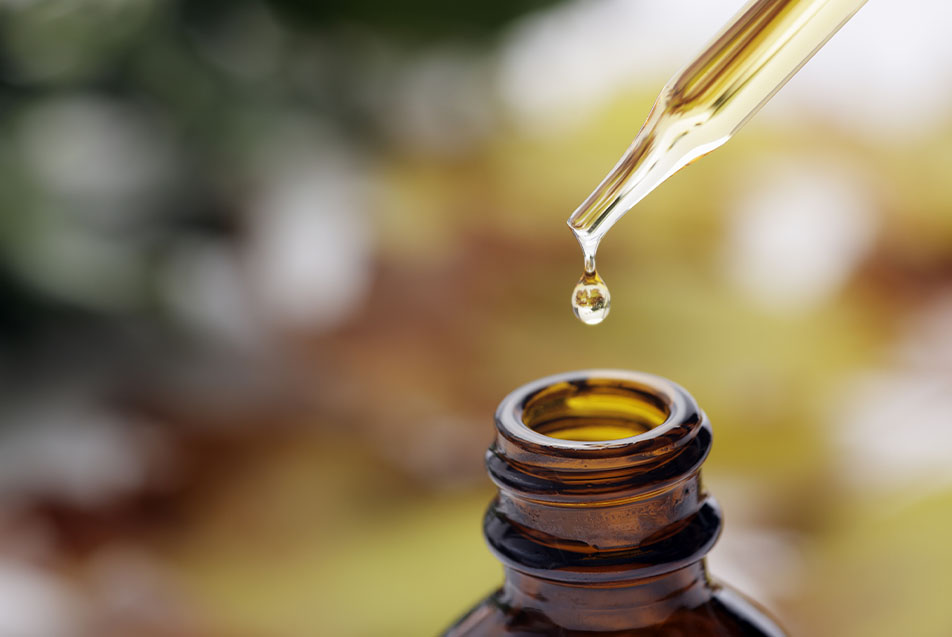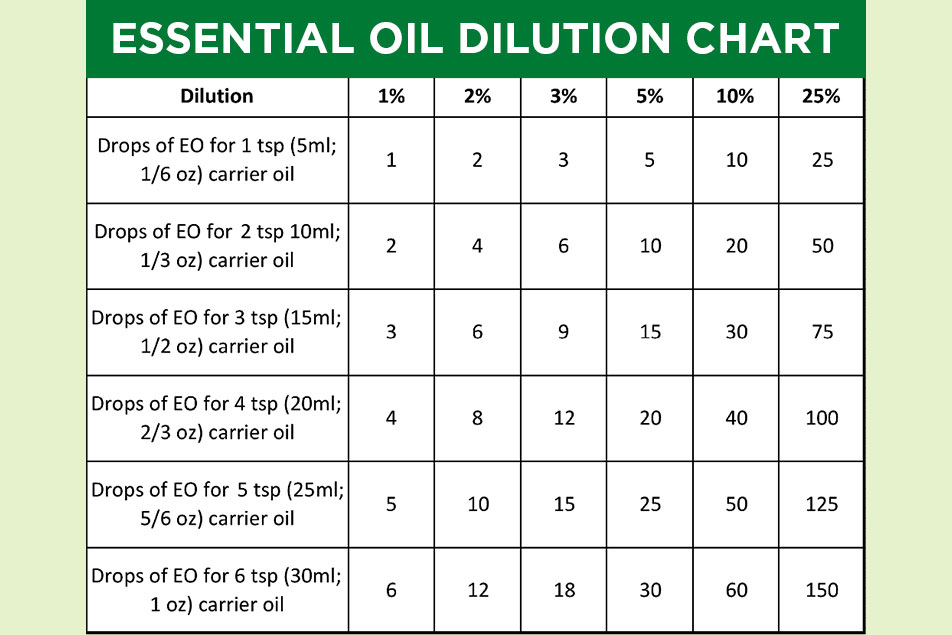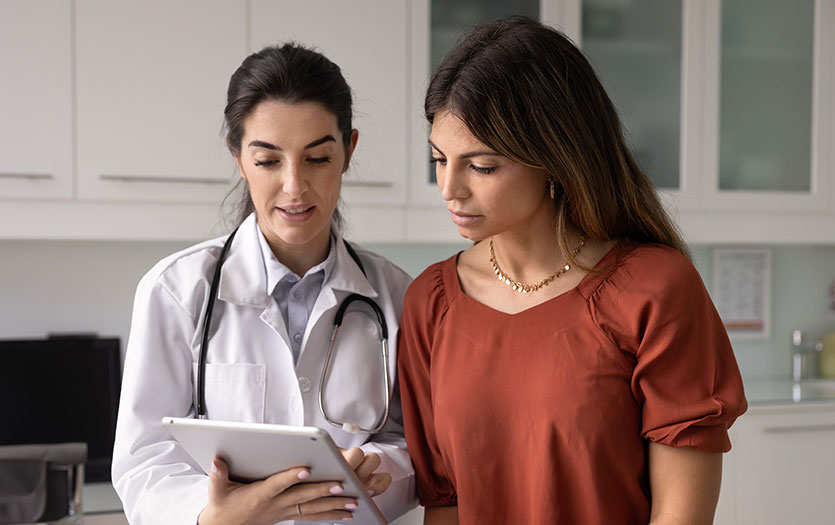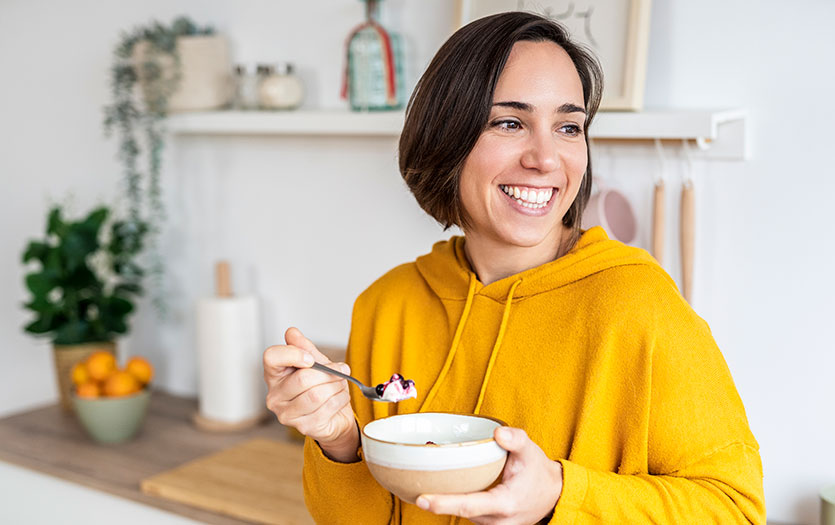
Essential oils have been around for years, but their popularity seems to be on the rise. With so many ways to utilize them and so much information in the market, it’s hard to know what’s right. Jaime Vinson BSN, RN, HN-BC, RYT, Holistic Nursing Coordinator, Clinical Nurse Specialist Fellow, Parkview Health, who also serves as NAHA Director for Indiana, helps to explain what essential oils are, safe best practices and when you should consult your physician.
What are essential oils?
Essential oils are the oils produced by a plant. When a plant grows, it has secretory glands that hold the oil. The natural oil is typically obtained through a distillation process. Take an orange for example. When you peel an orange and you see that spray from the rind, it’s not the juice of the orange, but rather the essential oil. Essential oils are the spirit of the plants and when we distill them we are looking at that spirit.
Also, it’s important to note that oils can exist in very small amounts in some plants and larger amounts in others. An orange rind and the spray from it are so readily available that this option is less expensive than rose or jasmine oil.
How do essential oils work?
Generally, essential oils are utilized to help improve an individual’s health or mood via therapeutic use, but let’s take a closer look. The glands that have oils in them are made up of molecules. Take a rose for example, when you smell a rose, you are inhaling those molecules into your nose. They go up your nostrils and into your olfactory membrane. Those receptors carry the molecules to your olfactory bulb, which is a mass of nerves that sends triggers or messages to the cerebral cortex and limbic system, triggering a hormone released into your body. Your body then responds by either creating a calming or uplifting effect or by triggering a scent memory.
Are essential oils safe?
Yes and no. You don’t want to use essential oils that you personally find offensive, right? So, it’s important to be mindful when using essential oils around others. Not everyone likes the same smells and some people may even be allergic. Be aware of what you’re wearing or diffusing because it could cause issues for someone else.
Some oils can trigger respiratory distress, especially in children and those with asthma and respiratory conditions. In addition, our scent memory can play a key role and have very powerful effects. Lavender, for example, is very calming and for the most part, everyone seems to like it. However, there are some people who are allergic to lavender or have a bad scent memory associated with lavender or other oils. They could experience uncomfortable feelings or have negative reactions to a scent if they have had a bad experience associated with that smell. The scent could seem light or mild and still have a profound effect on the body.
Also, the direct application of essential oils is not recommended. It’s extremely important that you dilute your essential oils with a carrier oil such as olive, avocado, coconut or sweet almond. Diluting your essential oils with a carrier oil can help prevent skin irritation, an allergic reaction and chemical burns.
Are they safe to ingest?
In general, no. That said, essential oils can be used as food additives if they are extremely diluted. A great example of this is the peppermint leaf. When you take a peppermint leaf and you put it in your mouth and start chewing, what happens? It has a very strong taste, it opens your sinuses and you can feel a cooling sensation. What’s important to realize is that in that one peppermint leaf there’s not even one drop of oil. It’s an extremely small amount.
Also, remember, water and oil do not mix, and everything we ingest must be excreted from our bodies. So, high doses of essential oils over a long period of time can cause liver and kidney damage. If you’re ingesting them, then you’re using them as medicine and you need to work with someone who is educated in that kind of medicinal work.
Can I put drops of straight essential oils directly into my mouth?
I would not recommend drinking drops of straight essential oils. Let’s look at a hot oil. Take for instance oregano, it’s delicious! We all cook with it. It’s on pizza, in spaghetti, but it’s a hot oil, meaning it has a high phenol content and it will burn your skin. One drop on your skin, you will soon feel a burning sensation. Can you imagine what that would feel like when applied directly under your tongue?
Also, remember that peppermint leaf we talked about earlier? It was so strong and produced very powerful reactions within our body. What do you think would happen if you put a drop of peppermint essential oil directly into your mouth?
Another misconception I hear a lot is regarding lemon essential oil and how it’s so great to ingest and you should put it in your water! But again, water and oil do not mix. The same education telling you to put essential oils into your water is also telling you not to put essential oils into a plastic cup because it eats the plastic. Imagine what would happen if you put that in your mouth, on your fragile mucous membranes, down your esophagus and in your stomach.
Are they safe to use on our skin?
It’s okay to make your own lotions and bath products, they can be healthy alternatives to synthetic fragrances, but you must dilute them. Also, putting the oils directly into the bathtub doesn’t work. Because you guessed it, oil and water do not mix. Also, when you’re in the hot bathwater, you’re opening your pores, making yourself more susceptible to that oil with the potential to burn or irritate your skin. If you do choose to use the oils, you must use something to help emulsify the oil, allowing it to mix with the water. A simple way to do this is by using a small amount of unscented liquid soap, adding a drop of essential oil, and mixing it well prior to adding it to your bathwater. Also, be cautious when using citrus essential oils on your skin. This can cause photosensitivity, meaning when exposed to sunlight or tanning beds they can cause severe burns where the oil was applied.
Is there anyone who should refrain from using essential oils?
Essential oils are unique to each person and must be personalized. Everyone should know how to dilute their oils. It’s best to dilute down to 0.5 – 1.0% for small children, the elderly and even animals. Let’s expand a little on each:
- Animals: Dogs and cats have more olfactory receptors, so those smells are more intense for them. Be mindful and take caution when using with animals, some essential oils can be extremely toxic for them, especially when regularly diffused in the home.
- Small children: Dilution with children is essential. They are experiencing all these things for the first time and they are very powerful. Use extreme caution with small children when diffusing or applying because it could result in allergic reactions or even burn their skin.
- Elderly: Dilution is important with this population because older individuals have thinner skin and improper application could burn them. Also, as previously mentioned, some oils can cause respiratory distress. However, there are oils that can be complimentary to respiratory health. For example, some cough drops have a minute amount of eucalyptus in them, which helps to open sinuses and can be beneficial.
If you do have a respiratory condition or disease, please talk to your doctor. Aromatherapy is meant to be a complementary modality not a replacement for traditional medicine. When we respect and use essential oils in that way, they can be very synergetic and effective.

Who should I consult before diving into essential oils?
Always speak with and consult your physician. An aromatherapist can be helpful, but make sure they have an unbiased education from reputable sources such as:
- National Association for Holistic Aromatherapy (NAHA): Its mission is to advance the knowledge of the medicinal use of aromatic plants and essential oils to its fullest extent and to support aromatherapy as a truly holistic professional art and science. NAHA's goal is to educate the general public, trade/professional associations, business owners, the media and practitioners on the proper use of essential oils and aromatherapy while increasing awareness of issues surrounding aromatic plant sustainability.
- American Herbal Products Association (AHPA): They look at herbal products on the market. AHPA advocates the U.S. Congress; State governments; FDA; FTC; USDA; FWS; NIH; NCCIH; U.S. Pharmacopeia and others for effective laws and regulations that promote the responsible commerce of herbal products. AHPA regularly produces in-person and online educational events featuring industry-leading experts discussing regulatory and technical issues that impact the herbal product industry.
As a consumer, how do I identify high-quality essential oils?
To keep the crops or plants alive and bug-free some are sprayed with pesticides. Those pesticides could get into the essential oil during the distillation process. Because there’s a lack of regulation, I try to find organic options, which I personally believe smell a little different.
As for quality, do your research on the manufacturer. Find out how they grow and harvest their crops. Maybe even research their distillation process. Essential oils are like wine. We’re using the spirit of the plant and those plants are like the grapes. If the plant is grown in a certain year, in a field with specific soil, they are going to yield different results than their counterparts grown elsewhere. Just like grapes that have been grown in the sunshine, on a mountain with a certain amount of rain and sunshine are going to taste different than those grown in a different region.
Also, cost is not always a good indicator of quality. A high price tag doesn’t always mean it’s the best. There are some small-batch companies that are doing some amazing and unique things.
Are essential oils regulated?
Currently, essential oils are unregulated by the Food and Drug Administration (FDA). However, there are many oils that the FDA does support, but only as “food additives” because they have been diluted down many times. However, it’s important to note that the FDA approves synthetic oils as food additives as well.
Do essential oils impact the environment?
Yes! Please, be mindful of the environmental impact when using essential oils. We want people to be respectful and responsible when utilizing essential oils because it takes so much of each plant to create a small amount. For example, it takes:
- 10,000 pounds of rose petals to fill a 5mL bottle
- 250 pounds of lavender to fill a 5mL bottle
- 6,000 pounds of Melissa plant (lemon balm) to fill a 5mL bottle
- 1,500 lemons to fill a 5mL bottle
Also, there are some things like sandalwood trees that are starting to hit the endangered species list, but the demand for sandalwood is still so high and with little to no regulations there are a lot of poor practices occurring in the collection process. For more information regarding essential oils and their environmental impact, please visit EcoWatch.




